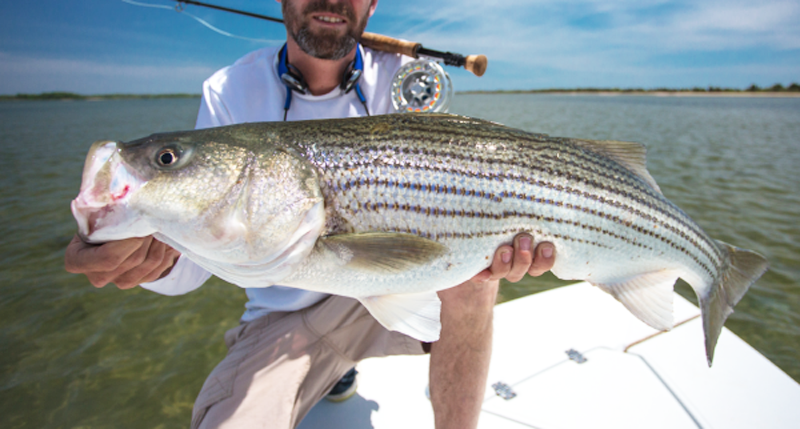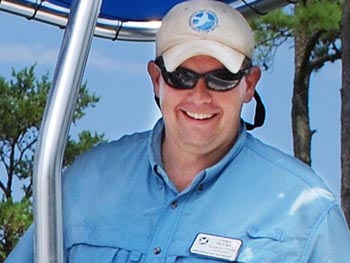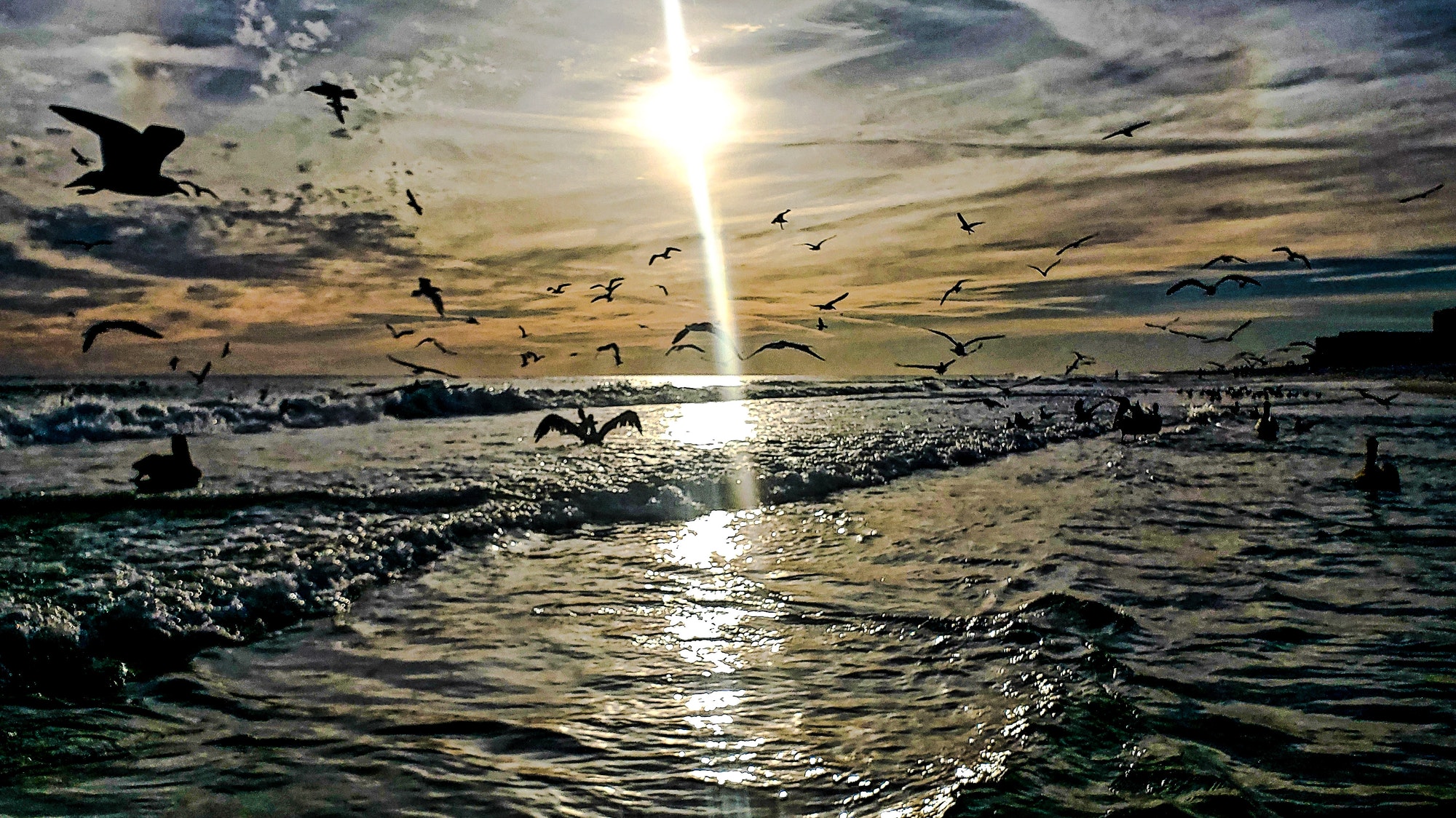
Capt. Andrew Derr with a flats caught and released Atlantic striped bass. Morone saxatilis [striped bass] arguably the most popular nearshore game fish from Maine to Virginia. World record is 81-lbs, 14oz.
It’s hard to find a Chesapeake Bay watershed resident whose eyes don’t light up at the mention of striped bass, or rockfish

Chris Moore: senior regional ecosystem scientist for the Chesapeake Bay Foundation.
By Chris Moore / Chesapeake Bay Journal – Chesapeake Bay Foundation/ March 23, 2021
For many of us, striped bass are a big reason we fell in love with the Bay and being on the water in the first place. But whether you love them for their fight, eating, or their critical place as an apex predator in the ecosystem, we can all agree that the Bay would be greatly diminished without this iconic fish.
There are multiple reasons striped bass populations are struggling. While overfishing is a serious problem, it’s not the only one. Low-oxygen dead zones, driven by excess nitrogen and phosphorus pollution in the Bay, can stress striped bass and push them into warmer waters than they prefer, making them more susceptible to diseases like mycobacteriosis. Stress and injuries from being caught and released result in an unfortunately high number of dead fish each year. There are also concerns about the health of the population of menhaden, a primary prey species for striped bass, which are harvested by an industrial fishing fleet in the Bay.

Data not collected for Texas’ clean up funds. Source: Carbon Tracker Initiative Data visualization: Luna Anna Archey/High Country News
Energy companies have left Colorado with billions of dollars in oil and gas cleanup
As the state tries to reform its relationship to drilling, an expensive task awaits.

Nick Bowlin – nickbowlin@hcn.org
By Nick Bowlin / High Country News / March 11, 2021
When an oil or gas well reaches the end of its lifespan, it must be plugged. If it isn’t, the well might leak toxic chemicals into groundwater and spew methane, carbon dioxide and other pollutants into the atmosphere for years on end.
But plugging a well is no simple task: Cement must be pumped down into it to block the opening, and the tubes connecting it to tanks or pipelines must be removed, along with all the other onsite equipment. Then the top of the well has to be chopped off near the surface and plugged again, and the area around the rig must be cleaned up.
There are nearly 60,000 unplugged wells in Colorado in need of this treatment — each costing $140,000 on average, according to the Carbon Tracker, a climate think tank, in a new report that analyzes oil and gas permitting data. Plugging this many wells will cost a lot —more than $8 billion, the report found.
So, maybe you thought double hauling was difficult?
Well, it is and the sole reason why almost everyone who wanted to become a fly fisher quit. But wait, wait, don’t quit; Topher Browne says he can ‘fix you.’
If not, just buy a Henry Fly Rod and be done with casting difficulties.







